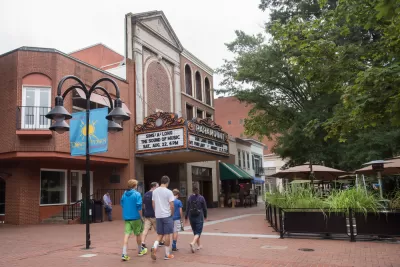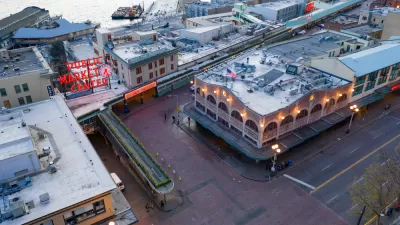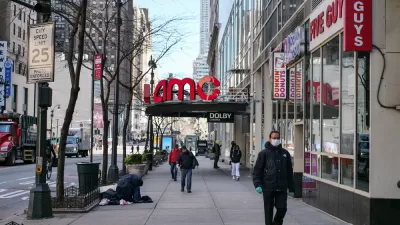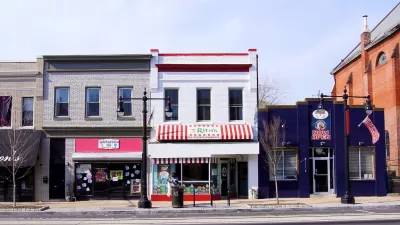The COVID-19 pandemic and massive mall-retailer closings has left millions of highly skilled workers from the retail and food and beverage industries unemployed and eager to work. Many will seek to open their own businesses in downtowns.

An article by Robert Gibbs, FASLA, for The Dirt, is sampled here. For the rest of the article, click on the link below.
Since the earliest human settlements, the retail experience has evolved to meet the needs of the public. This evolution has taken us from rural markets to towns, cities, suburban shopping malls, big box mega stores, and, more recently, the Internet. But what will retail shopping look like once COVID-19 lock downs are over and people return to the wild for their shopping experiences?
When all the dust settles, the post-pandemic era should provide a boost to downtown areas, in part due to newly unemployed but highly skilled restaurant and retail workers opening new businesses in downtowns where rent prices will trend downward.
***
Downtown shopping districts will capture traffic from fading malls
Malls will struggle in the wake of COVID-19. Being inside an enclosed bubble will not be the ideal situation for most shoppers for the foreseeable future. Morning Consult reports that 24 percent of U.S. consumers fear shopping in malls for at least the next six months due to the COVID-19 threat.
As an article about a newly reopened mall in Atlanta explains, the experience won’t be very welcoming in the near term. Play areas are roped off, water fountains covered, and stores are limiting the number of shoppers due to social distancing. Add in the inconvenience factor, and it’s clear why so many malls are facing a reckoning in the coming years.
As regional malls continue losing consumers due to changing shopping habits and fears of COVID-19, an excellent opportunity presents itself for villages, towns, and cities to regain their dominance as thriving centers for retail and entertainment.
FULL STORY: After Lockdown, New Opportunities for Downtown Shopping Districts

Alabama: Trump Terminates Settlements for Black Communities Harmed By Raw Sewage
Trump deemed the landmark civil rights agreement “illegal DEI and environmental justice policy.”

Planetizen Federal Action Tracker
A weekly monitor of how Trump’s orders and actions are impacting planners and planning in America.

The 120 Year Old Tiny Home Villages That Sheltered San Francisco’s Earthquake Refugees
More than a century ago, San Francisco mobilized to house thousands of residents displaced by the 1906 earthquake. Could their strategy offer a model for the present?

Ken Jennings Launches Transit Web Series
The Jeopardy champ wants you to ride public transit.

BLM To Rescind Public Lands Rule
The change will downgrade conservation, once again putting federal land at risk for mining and other extractive uses.

Indy Neighborhood Group Builds Temporary Multi-Use Path
Community members, aided in part by funding from the city, repurposed a vehicle lane to create a protected bike and pedestrian path for the summer season.
Urban Design for Planners 1: Software Tools
This six-course series explores essential urban design concepts using open source software and equips planners with the tools they need to participate fully in the urban design process.
Planning for Universal Design
Learn the tools for implementing Universal Design in planning regulations.
Clanton & Associates, Inc.
Jessamine County Fiscal Court
Institute for Housing and Urban Development Studies (IHS)
City of Grandview
Harvard GSD Executive Education
Toledo-Lucas County Plan Commissions
Salt Lake City
NYU Wagner Graduate School of Public Service





























